The Straight Shot: Federal vaccine updates - Oct 15, 2025

weyo - stock.adobe.com.
2025 has seen many changes in federal vaccine policy and programs. This list—published Oct. 15, 2025, and drawn from news reports and other information—ranks the most significant changes to vaccination policy, with brief commentary from the editors.
Editors’ note: Trust in health information from the CDC continues to decline. At the same time, most Americans trust their pediatricians, and a majority of Americans trust medical societies. We're witnessing a shift in the center of gravity on vaccine policy away from the federal government.
The Straight Shot in your inbox
Stay up-to-date on threats to vaccine safety, changes in federal policy, and vaccine availability and accessibility with The Straight Shot. Click below to get these updates directly in your inbox.
Sign up for email updatesNew and updated
1. New ACIP working group to target vaccine schedule
On Oct. 8, the CDC posted the terms of reference for a new Child and Adolescent Immunization Schedule Workgroup as part of its Advisory Committee on Immunization Practices (ACIP).
The workgroup will be evaluating a number of issues including timing and order of immunization and co-administration of vaccinations. The workgroup will also be examining the use of certain vaccine ingredients, including aluminum, which is used as an FDA-approved adjuvant (a compound that enhances immune responses) in a number of childhood vaccines, including vaccines DTaP, Hepatitis A and B pneumococcus and meningococcus There are presently no alternatives to these formulations.
In an interview, ACIP chair Robert Malone confirmed that the workgroup was planning to investigate aluminum. (See the Aug. 7 issue of The Straight Shot for an item on Secretary Kennedy challenging the validity of a study that found no association between aluminum and various neurodevelopmental conditions.)
Editor's note: It certainly sounds like the fix may be in for this workgroup. The only question is how wide-ranging these changes will be in affecting access. – SD
2. CDC calls on manufacturers to break apart MMR vaccine
Acting CDC Director Jim O'Neill called on vaccine manufacturers to replace the current approach, in which vaccines for measles, mumps, and rubella are combined into one shot, with one in which each vaccine is administered separately. This follows comments from President Trump at a press conference (noted in the previous Straight Shot) where he called for this change that would increase the number of shots children receive.
Editors' note: The claim that it is safer to give three shots instead of one originated in a study that was retracted years ago. There is no justification for doing so. The combination vaccine has undergone full FDA approval. Moreover, there are no FDA-approved single antigen vaccines that could replace the MMR vaccine. Calls to break the vaccine apart do nothing but undermine confidence in this vaccine amid a national measles outbreak. They also make it likely that overall vaccine uptake will decline.
3. CDC finalizes ACIP recommendations–with changes
On Monday, Oct. 6, HHS formally adopted recommendations from last month’s ACIP meeting; CDC updated its immunization schedule the following day. As noted in the Sep. 25 issue of the Straight Shot, the most noteworthy change to the schedule is that the Covid-19 vaccine is now recommended only with “shared clinical decision-making” for adults and children.
Interestingly, although ACIP did vote on a Covid-19 vaccine recommendation specific to pregnant women, the official recommendation CDC issued does include pregnancy as a medical condition for which the Covid-19 vaccine is recommended as part of shared clinical decision-making. This is a reversal from the recommendations Secretary Kennedy ordered CDC to issue that specifically exempted pregnant women from the Covid-19 vaccine recommendation.
Meanwhile, parents continue to struggle to access Covid vaccination for their children because some pharmacies and pediatricians’ offices are not stocking this vaccine.
Editor's note: While CDC’s issuance of formal vaccine recommendations did allow for people to finally get vaccinated against Covid-19, the chaos surrounding the ACIP meeting and the rollout of this season’s immunizations has contributed to ongoing confusion. – JR
4. Trump administration fires CDC employees
More than 1,000 employees at the CDC, including staff leading the response to the ongoing measles outbreak, were fired as part of the recent shutdown-associated layoffs. But soon after, word came that some (perhaps many) of the layoff notices had been sent in error and would be reversed.
Editors' note: Where's that emoji for the facepalm? Unfortunately, this is not a joke, and it is awful to treat CDC staff in this way.
5. CDC hires another anti-vaccine advocate
We’ve previously highlighted the hiring of various staff within HHS who come in with strong anti-vaccine records. The most recent of these hires is Mark Blaxill, father of a child with autism and founder of SAFE MINDs, an organization that promoted the theory that thimerosal in vaccines causes autism. Blaxill has not been trained as a physician or a scientist and it is not clear what role he will be playing at the CDC. He is currently a senior advisor in the Office of the Director.
Editor's note: As the CDC sheds scientists with years of experience, the ranks of the anti-vaccine advocates joining the agency continue to grow. – SD
The Straight Shot in your inbox
Stay up-to-date on threats to vaccine safety, changes in federal policy, and vaccine availability and accessibility with The Straight Shot. Click below to get these updates directly in your inbox.
Sign up for email updatesOngoing
1. Potential changes to the Vaccine Injury Compensation Program
Secretary Kennedy posted on X on Jul. 28 that he is working with the Attorney General to “fix” the Vaccine Injury Compensation Program (VICP), a longstanding effort that provides limited liability for vaccine manufacturers and administrators, thus reducing market barriers, as well as compensation for people who have been injured by vaccines.
He followed the post with an interview with Charlie Kirk, the Executive Director of Turning Point USA[1] , but failed to articulate any concrete steps he and HHS are taking to address the issues he identified. This is on the heels of Sec. Kennedy bringing Drew Downing, a lawyer with experience suing vaccine manufacturers, into HHS to work on the VICP. HHS has never stated specifically what Downing was brought on to accomplish. It is clear that Sec. Kennedy does have levers with regard to liability exposure that could indeed impede access to vaccines.
(No change from the previous update.)
Editor's note: Changes to the VICP have the potential to dramatically reduce access to vaccines. This will remain on the list until we know more. – JR
2. HHS mismanages the measles response in the Southwest
As of Oct. 7, there have been 1,563 confirmed cases of the disease, including 193 hospitalizations and three deaths; this is the largest number of cases in a single year in the US in 33 years. California now has more cases in 2025 than in all of 2024. Case numbers are now growing in Arizona and Utah.
The outbreak in West Texas has ended in part because the virus sickened so many people it ran out of susceptible people to infect. The number of communities where people are undervaccinated has grown, meaning there are increasing pockets of susceptibility to additional outbreaks of measles.
During the response to the West Texas outbreak, Sec. Kennedy made a number of misstatements about the safety of the measles vaccine, endorsing unproven treatments, and preventing experts from briefing the public. HHS also cut grant funds for the states' measles responses.
Editor's note: Already this year, we have seen three measles-related deaths, including two in children. The combination of reduced support for immunization efforts, false information about vaccines coming out of HHS leadership, and a growing number of under-vaccinated communities means that the risk of additional measles outbreaks this year is actually going up, not down. This item will stay on our list until the outbreak ends or the US loses its measles-free status. – SD
3. HHS moves $500 million to study older vaccine technology favored by two appointees
As noted in the New and Updated item 1 above, HHS has permanently pulled $500 million from contracts for next-generation vaccines and is using the funds to study a type of “whole-virus" vaccine technology championed by two political appointees. “Whole-virus” vaccines are 70 years old and thought by many scientists to be less effective and cause more adverse effects than newer technologies.
(No change from the previous update.)
Editor's note: This item, described in more detail in previous updates of the Straight Shot, will stay on our list until we learn more about this enormous investment of federal resources. – JS
4. HHS cuts funds for vaccination in states and for its own vaccine staff
A federal judge has ruled that the Administration cannot proceed—in certain states that sued—with billions in cuts to state public health funds. In the other states that did lose funding, some funds were used to support vaccination clinics; other funds were used for outbreak monitoring and response. Personnel cuts to CDC vaccine activities have remained in place.
(No change from the previous update.)
Editor's note: This item, detailed in previous updates of The Straight Shot, stays on our list until the litigation is resolved. – JR
5. HHS and autism
On Apr. 10, Sec. Kennedy announced in a cabinet meeting that HHS has launched an effort to understand the causes of autism, with results expected in September. He has since amended that timeline, saying that there will be some information in September and “more definitive” information coming six months after that. On May 7, CMS and NIH announced that they will be sharing data in order to investigate the causes of autism. We're watching whether this effort will proceed in a scientifically rigorous manner, including whether it will attempt to point to vaccines as the cause of autism. On May 27, the NIH issued the funding opportunities for its Autism Science Data Initiative.
At a cabinet meeting on Aug. 26, Secretary Kennedy stated that, “We will have announcements as promised in September, finding interventions, certain interventions, now that are clearly almost certainly causing autism. And we’re going to be able to address those in September.”
Autism also came up at the press conference on Sep. 22. President Trump insinuated a link between autism and vaccines, saying, “And by the way, I think I can say that there are certain groups of people that don't take vaccines and don't take any pills that have no autism. That have no autism. Does that tell you something?”
(No change from the previous update.)
Editor's note: We’ll keep this issue on the list as we anticipate this to be an active area given Secretary Kennedy’s focus on this topic. – PL
Archived this week
1. Chaos at the ACIP
The recent meeting of the CDC’s Advisory Committee on Immunization Practices (ACIP) exemplified the chaos of current US vaccine policy-making. Five members were added just days before the meeting; usually, candidates are vetted for months beforehand. Several lacked basic understanding of the committee’s function and appeared to be chosen on the basis of their positions on the Covid vaccine.
During the meeting, the comments of committee members revealed substantial confusion about some of the building blocks of vaccine access, including insurance coverage, the Vaccines for Children (VFC) Program, and the Medicaid program. Some of what we heard:
| Statement | Editors' comment |
|---|---|
| "Mr. Chairman, might I ask that in the future we have full written information on each of the things we’re voting on… it’s very difficult without a full written record of what we’re voting on and its consequences." | This statement, by a committee member not identified on the video, exemplified the lack of transparency about what votes would actually mean for Americans' access to vaccines. (See here at 6:32:41) |
| "Can I can I clarify something from both of you? So under CMS is CHIP, correct? And under VCSF is sort of all other vaccine payments for children?" | This question, by committee member Robert Malone, exposed a serious misunderstanding of the Vaccines for Children Program (VFC, not VCSF). VFC covers underinsured children, children on Medicaid, American Indian, and Alaska Native children. It does not cover children who are otherwise insured. (See here at 6:36:44) |
| "I'm going to abstain because I'm not quite sure what I'm voting for here." | This statement, by committee member Cody Meissner, reflected the confusion that led to re-votes during the same meeting. (See here at 6:41:03) |
| "Mr. Chairman, we're debating something already without having a motion on the floor. So I think you need to have a motion on the floor. Robert's rules of order. You need to have a motion on the floor...open it up for discussion because I think there is going to be some debate as to whether any evidence at all was presented for what's being recommended...have a motion motion on the floor then open it for discussion and then take a vote either to reward this or to discard it completely." | This statement, by a committee member not identified on the video, reflected confusion about how to proceed. (See here at 0:28:32) |
Editor's note: The ACIP meeting was poorly planned, poorly organized, and poorly executed. Thank you to Hannah Melchinger for tracking these comments. – SD
2. President Trump expounds on vaccines
At a press conference focused on autism on Monday, September 22, President Trump called for additional exploration of a link between vaccines and autism, suggested waiting until children turned 12 to give them the hepatitis B vaccine, and advocated for splitting the MMR vaccine into separate parts. Specific quotations include:
- “You have a little child, a little fragile child, and you get a vat of 80 different vaccines, I guess 80 different blends, and they pump it in.”
- “To have families destroyed over this is just so, so terrible. I also, and we've already done this, we want no mercury in the vaccine. We want no aluminum in the vaccine. The MMR, I think, should be taken separately. This is based on what I feel. The mumps, measles, and… Or the three should be taken separately. And it seems to be that when you mix them, there could be a problem. So there's no downside in taking them separately. In fact, they think it's better, so let it be separate.”
- “and it's so important to me to see the doctor four times or five times for a vaccine. Don't let them pump your baby up with the largest pile of stuff you've ever seen in your life going into the delicate little body of a baby. Even if it's two years, three years, four years, you just break it up into, I would say, five, but let's say four, four visits to the doctor instead of one. And certain things I think you should do. We've already taken out and are in the process of taking out mercury and aluminum now. You know what mercury is, you know what aluminum is. Who the hell wants that pumped into a body? And there were rumors about both of them for a long time, but we're having them taken out. We're having them taken out of the vaccines.”
- “Now, it's possible that you can reduce them and give … I'd give them in small doses, but it's possible maybe in that particular case the MMR wouldn't work in small doses, but you can certainly give them the separate shots.”
Editors' note: We usually don't add individual comments that aren't policy to the Straight Shot, but we had to make an exception in this case, given the President's assertions without even the pretense of evidence and the significant potential for harm.
3. ACIP makes Covid vaccine recommendations
ACIP voted that for those 65 and older, “vaccination is recommended based on individual clinical decisionmaking.” For those 6 months to 64 years old, the committee recommended “vaccination based on individual-based decisionmaking with an emphasis that the risk-benefit of vaccination is highest for those at an increased risk for severe COVID-19 and lowest for those who are not at increased risk (according to the CDC list of COVD-19 risk factors).”
The committee clarified that these recommendations would be considered "shared-clinical decisionmaking," which would maintain mandatory insurance coverage.
Editor's note: The ACIP recommendation raises a possible challenge for an individual under age 65 without risk factors to be vaccinated. According to ACIP, this is an "individual-based decision." But according to the FDA label, only individuals with risk factors should be vaccinated. Typically, the CDC recommendations are narrower than the FDA label; in this case, the reverse is true. This discrepancy might create a problem in jurisdictions where pharmacists are limiting vaccination to the FDA label. – SD
4. ACIP blocks first dose of MMRV vaccine
There are two options for vaccination against measles, mumps, rubella, and varicella. One involves getting a single combination vaccine for all four diseases (MMRV), while the other involves two shots at the same time: one for measles, mumps, and rubella (MMR) and one for varicella.
Due to a small increased risk of febrile seizures with the MMRV vaccine in young children, compared to MMR and varicella separately, since 2008, the ACIP has recommended that children younger than four receive the two-shot option. Approximately 15 percent of children nonetheless receive the single-shot MMRV for their first dose. Children receive a second dose at four to six years of age; MMRV is recommended by the CDC for that dose.
Citing this small increased risk of febrile seizures, ACIP voted to not recommend the combination vaccine for children younger than 4. Then, after initially voting not to change the recommendation that the VFC program purchase the vaccine, the committee removed the MMRV vaccine from the VFC for the dose given to children under 4 years old.
Editor's note: This decision was not carefully considered; a key question is whether it is appropriate to trade off one fewer injection for a small increased risk of a febrile seizure, but the committee was not presented with a benefit-risk assessment of this question. Moreover, the implementation of this decision matters; if it affects the supply of measles vaccines because purchasing and distribution patterns are disrupted in the middle of a growing outbreak in some states, the consequences could be significant. – JR
5. ACIP defers a decision on the hepatitis B vaccine
ACIP debated a motion to recommend deferring the first dose of the hepatitis B vaccine for a month for babies born to mothers who have tested negative for hepatitis B. However, the committee voted to table that motion after a number of members said they needed more information.
The committee did vote to recommend that all pregnant women be screened for hepatitis B, which is already a clinical recommendation.
Editor's note: The strong endorsement of Secretary Kennedy and President Trump for ending the recommendation for the birth dose of hepatitis B vaccine is a huge red flag about ACIP's direction. Experts are warning that such a move would leave thousands of babies at risk for chronic hepatitis B infection and its consequences, including cirrhosis and cancer. The change that ACIP debated could lead to hepatitis B infections through many routes, including: 1) if the initial screen test was actually a false negative; 2) pregnant people who test negative become infected later in their pregnancy, and 3) through exposure to household objects that have been exposed to hepatitis B. – SD
6. Sole-source contract
On Sep. 12, the CDC announced the awarding of a sole-source contract to research a connection between vaccines and autism, despite the significant existing body of research showing that there is no association.
Editor’s note: At a time when the government is cutting funding for health care research, there was no justification for researching a question that has been settled by multiple large studies. – PL
7. Fired CDC Director testifies
On Sep. 17, Dr. Susan Monarez testified before the Senate Committee on Health, Education, Labor and Pensions about her dismissal from the agency. She described the reason for her firing as her refusal to endorse ACIP's policy recommendations regardless of what they were. She testified that Secretary Kennedy asserted "the childhood vaccine schedule would be changing starting in September, and I needed to be on board with it.”
Editor's note: The reason for the chaos in US vaccine policy is now hiding in plain sight. Secretary Kennedy, who had a career as a vaccine critic prior to serving in his present role, is using his power to reduce access to vaccines. – PL
8. Vaccine skeptic David Geier can access data in the Vaccine Safety Datalink
We have previously noted the hiring of David Geier, a leading source of misinformation about vaccines, to investigate questions related to vaccine safety. The Wall Street Journal has reported on Geier’s attempts to gain access to various databases within HHS, including one that he had twice been precluded from using as a result of violating ethical rules. Geier's history has been discussed in previousversions of The Straight Shot.
On Sep. 17, we learned that Geier has been given access to personally identifiable data from CDC’s Vaccine Safety Datalink (VSD), the same database that he was previously reprimanded for misusing. It is not clear what research studies he is pursuing with this database and what other data he may have been given access to.
Nothing in Geier’s history gives confidence that research conducted by him will be conducted appropriately or rigorously. – JS
9. Draft MAHA strategy document again targets childhood vaccines
On May 22, as part of Secretary Kennedy’s focus on the rise of childhood chronic diseases, the White House issued the Make Our Children Healthy Again Assessment. One section of the report was dedicated to concerns regarding vaccines, questioning the expansion of the childhood immunization schedule, the adequacy of clinical trials, the effectiveness of safety monitoring, the integrity of the VICP, and the role of vaccine mandates. The report came under fire for including AI-generated inaccuracies and misrepresenting data.
HHS released a second “strategy” document on Sep. 9. The administration stated that it intends to “investigate vaccine injuries with improved data collection and analysis, including through a new vaccine injury research program at the NIH Clinical Center that may expand to centers around the country.” The document also discusses the development of a vaccine framework that includes “correcting conflicts of interest and misaligned science.”
Editor’s note: The Administration's focus on vaccines is not slowing down. Each of these steps will create new opportunities to affect access to products that are protecting millions of Americans. – PL
10. ACIP launches new investigations on vaccine safety
At their June meeting, the ACIP chair announced two new workgroups. The first aims to review the cumulative effects of the childhood and adolescent vaccination schedules. The second intends to examine vaccination recommendations that have not been reviewed in the past seven years, including the birth dose of hepatitis B vaccine–long a target of anti-vaccine organizations.
(No change from the previous update.)
Editor's note: The membership of these workgroups will be a signal as to whether their outcome has been predetermined, but they won’t be including liaisons from many major medical groups. – SD
11. Sec. Kennedy attacks safety of aluminum adjuvants in vaccines
In an unusual blog post on TrialSiteNews, Secretary Kennedy took aim at a Danish study published in Annals of Internal Medicine that found no association between aluminum adjuvants in vaccines and various allergic and neurodevelopmental conditions. Aluminum adjuvants, used in many vaccines, improve vaccine efficacy by enhancing the immune response to the vaccine. He described the study as "a deceitful propaganda stunt by the pharmaceutical industry" that uses "deceptive devices" and an example of "garbage-in, garbage-out exercises in statistical manipulation." The author of the study responded to Sec. Kennedy’s attacks, writing "none of the critiques put forward by the Secretary is substantive."
These comments should be read in the context of the MAHA report alleging a potential connection between childhood vaccines and chronic diseases, and the new ACIP workgroup on the cumulative effects of the childhood vaccination schedule.
(No change from the previous update.)
Editor's note: Sec. Kennedy has many ways to explore scientific concerns with a published scientific study beyond a slapdash blog piece on a hospitable website. He could have sought input from experts in pharmacoepidemology and vaccine safety. He could have asked the National Academies of Science, Engineering, and Medicine to provide a review of the strengths and weaknesses of the methodology. Instead, he wrote a screed laden with insults that revealed a profound lack of understanding of epidemiological research. If HHS leaders have concluded aluminum adjuvants are unsafe, that may lead to policy changes with a profound impact on the availability of vaccines. – JR
Tags
Topics
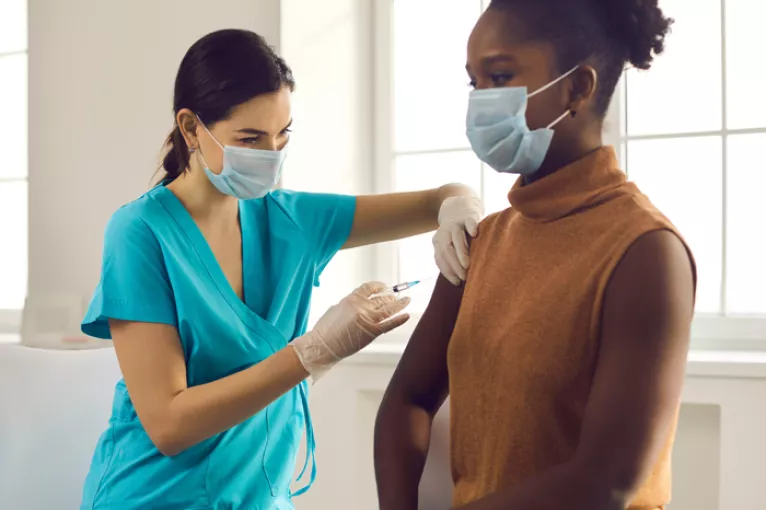
All Straight Shot updates
2025 has seen many changes in federal vaccine policy and programs, some of which threaten to harm the health and safety of millions of Americans. The Straight Shot—drawn from news reports and other information—ranks the most significant changes to vaccination policy, with brief commentary from the editors.
The authors
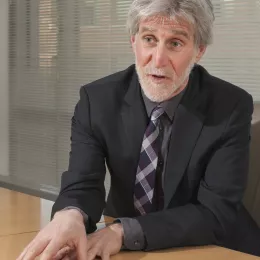
Peter Lurie, MD, MPH
President and Executive Director

Sarah Despres

Josh Rising, MD, MPH

Joshua M. Sharfstein, MD
The latest threats to vaccines
Off-label use of COVID-19 vaccines was once discouraged but has become common amid new guidelines
Vaccines
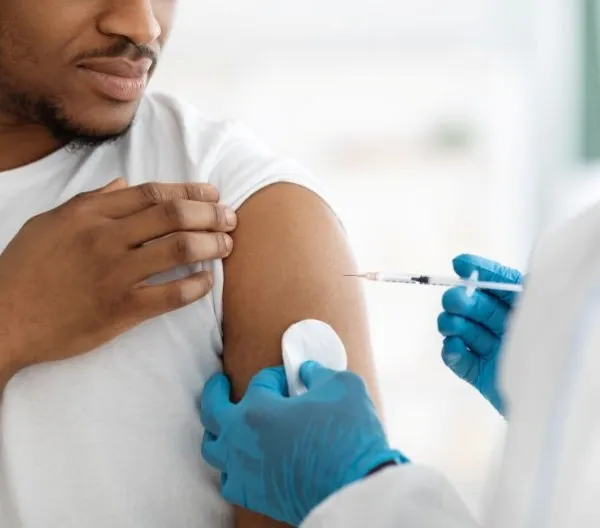
Inside the high-stakes battle over vaccine injury compensation, autism, and public trust
Vaccines

Do pediatricians recommend vaccines to make a profit? There’s not much money in it
Vaccines

CDC purge and Covid vaccine restrictions threaten public health
Government Accountability
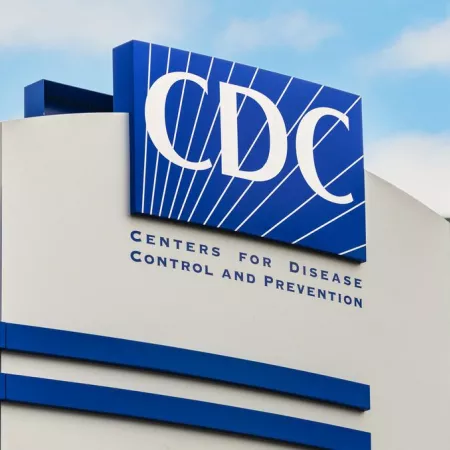
Pediatricians’ association recommends COVID-19 vaccines for toddlers and some older children, breaking with CDC guidance
Vaccines
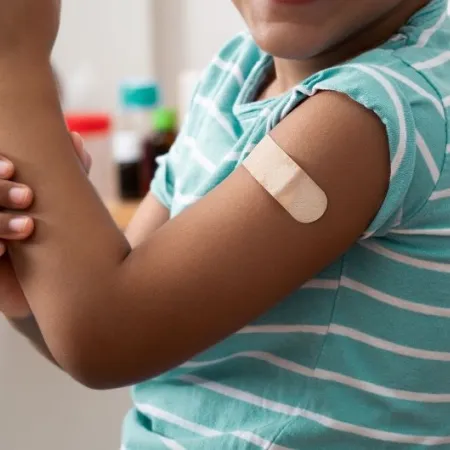
CSPI is your food & health watchdog
We envision thriving communities supported by equitable, sustainable, and science-based solutions advancing nutrition, food safety, and health.
As a nonprofit organization that takes no donations from industry or government, CSPI relies on the support of donors to continue our work in securing a safe, nutritious, and transparent food system. Every donation—no matter how small—helps CSPI continue improving food access, removing harmful additives, strengthening food safety, conducting and reviewing research, and reforming food labeling.
Please support CSPI today, and consider contributing monthly. Thank you.
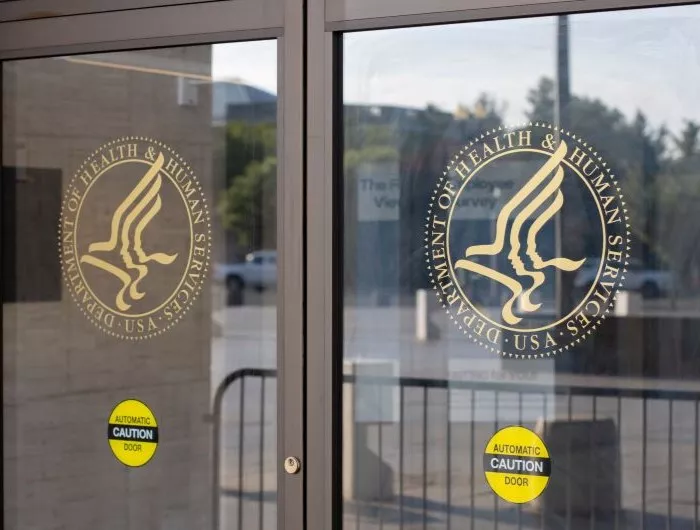
How CSPI is fighting threats to public health
Safe, nutritious food. Effective medicine. Empowered consumer choice. Honest and democratic government. These key building blocks of an American way of life can only be fully realized in a system that respects evidence, transparency, and accountability—a system where leaders believe in science and work for the public interest.

